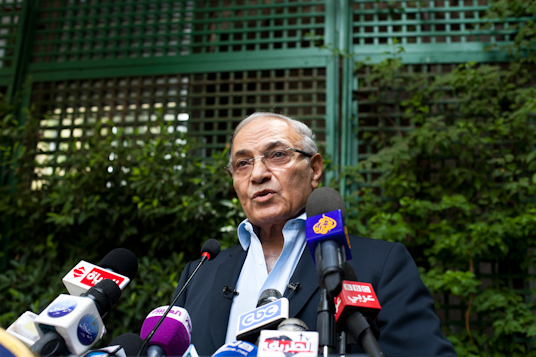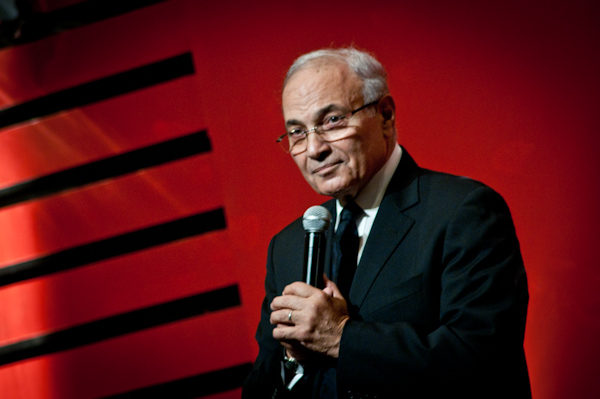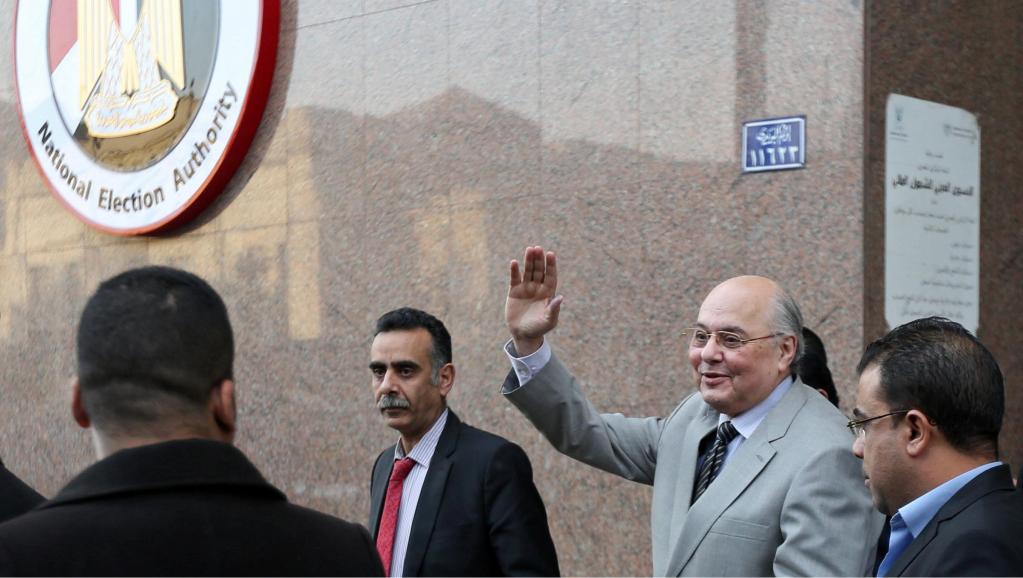
On Monday the Presidential Elections Committee (PEC) dashed the hopes of supporters of the revolution who wanted to see Ahmed Shafiq, a former army officer and Hosni Mubarak appointee, disqualified from the presidential race.
Shafiq, who many regard as an extension of the regime the 2011 revolution sought to bring down, finished second in the first round of voting, behind the Muslim Brotherhood’s Mohamed Morsy. The two candidates will proceed to a runoff vote scheduled for 16 and 17 June.
Supporters of Nasserist candidate Hamdeen Sabbahi, who came in third in the first round of the election according to the PEC’s tally, filed complaints that Shafiq’s campaign had cheated when some 900,000 active-duty military conscripts, who are legally ineligible to vote, were commanded to cast ballots for Shafiq. After the PEC, whose decisions cannot be appealed, rejected these complaints and certified Shafiq’s victory, those hoping to keep him out of the general election have only one hope left: the controversial and ambiguous Political Isolation Law. Even that is still a long shot.
Hurriedly rushed through the People’s Assembly shortly before the presidential election, the law bars from political life anyone who held the post of president, vice president, prime minister or was a senior member of the dissolved National Democratic Party in the 10 years before 11 February 2011, the date Hosni Mubarak stepped down.
Shafiq was disqualified from the presidential race under the law in April but reinstated the next day after the PEC accepted his appeal.
The Political Isolation Law is currently before the Supreme Constitutional Court. The PEC said on Monday that it will decide on the legitimacy of Shafiq running once the Court issues its decision, but the timing may make that impossible.
Negad El-Borei, a prominent lawyer, says it is unlikely that Shafiq will be disqualified under the law. Even though the law does apply to the former prime minister, Borei says, Article 28 of the Constitutional Declaration — “put in place by the Muslim Brotherhood, may God forgive them” — states that the final decision rests with PEC, who are unlikely to want to destabilize the election.
The Constitutional Declaration was the subject of a popular referendum in March 2011 and the Muslim Brotherhood mobilized its supporters to vote in favor of it.
Gamal Eid, a lawyer and the director of the Arab Network for Human Rights Information, thinks there may still be hope for disqualifying Shafiq from the race.
“If the Supreme Constitutional Court decides that the Political Isolation Law is constitutional, the PEC must disqualify Shafiq. I believe the PEC will obey because it doesn’t want to put itself in a confrontation with the people,” Eid said, suggesting that protesters would pressure the PEC.
But if it can avoid disqualifying Shafiq, the candidate who appears to have the backing of the Supreme Council of the Armed Forces, it will, Eid says.
“The fact that the PEC didn’t apply the Political Isolation Law right away shows that it submitted to the SCAF’s will. There is clear bias to, and collusion with, Shafiq,” Eid said.
The PEC could have applied the law, ignoring Shafiq’s appeal until the Supreme Constitutional Court ruled in favor of him, according to Eid. Instead, they reinstated the disqualified candidate and decided to wait for the verdict.
But the matter of timing may be enough to dash any hope of having Shafiq disqualified.
The vice president of the Supreme Constitutional Court denied on Tuesday previous reports that the court had set 11 June as a date for delivering its verdict on the Political Isolation Law.
Counselor Maher Samy told state-run news agency MENA that the challenge against the law is still being prepared for submission to the court’s panel of commissioners, which would write a report containing its opinion of the law before the court even sets a date to consider the appeal.
This means there is no possibility the court will rule before the second round of the election on 16 and 17 June.
Moreover, while a decision to disqualify Shafiq under the Political Isolation Law might be welcomed by his opponents, Adel Ramadan, legal officer at the Egyptian Initiative for Personal Rights, thinks that there is a strong chance that the law will be found to be unconstitutional and “a huge mistake made by the Muslim Brotherhood, because they were asked to pass a democratic law but instead passed a law targeting certain individuals just as the NDP used to do.”
Ramadan suggests that the PEC should have either rejected Shafiq’s appeal or halted the whole election process and wait for the Supreme Constitutional Court’s decision if it regards the law as unconstitutional.
Mahmoud Qandil, a legal adviser to the Sabbahi campaign, meanwhile said that the Political Isolation Law is “over” and that “after God, only the PEC can decide whether Shafiq stays in the race.”
Under Article 37 of the Presidential Elections Law, in the event of Shafiq being disqualified at this stage, voters would vote in a referendum on Morsy. If he failed to attract over 50 percent of the vote, new elections would be held.



